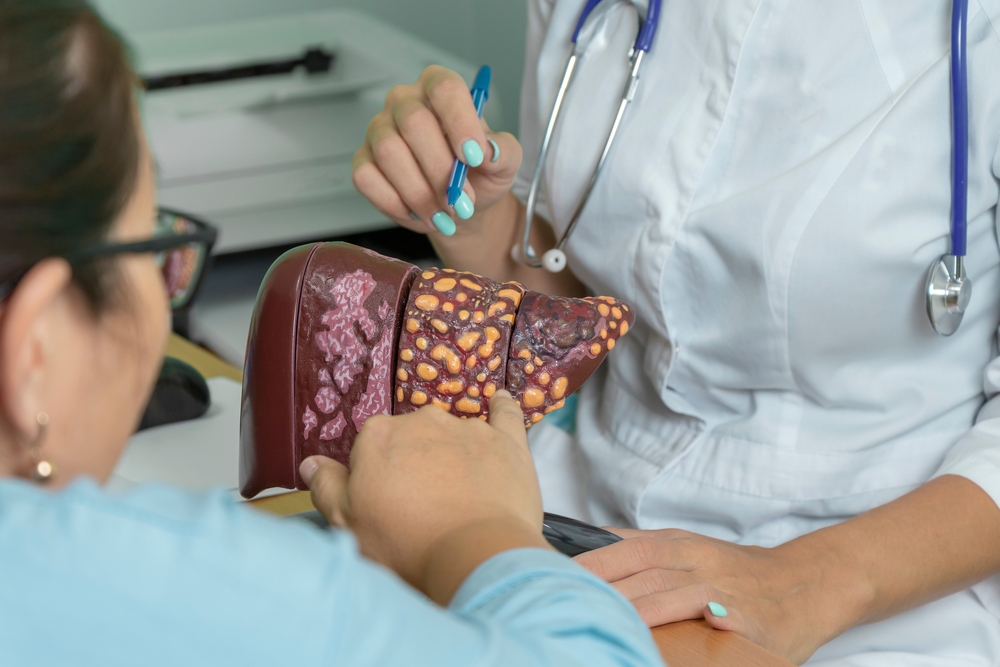Recovery for HPB surgery typically involves managing pain, maintaining nutrition, and monitoring for complications, but it goes beyond the first few days post-op. This guide will provide practical tips on each of these aspects to help you recover more smoothly. From what to expect in the first few days to long-term care strategies, we cover all the key steps to ensure an effective recovery.
The Essential Guide to Recovery for HPB Surgery
HPB surgery includes various procedures that target the liver, pancreas, and biliary system. These procedures involve liver resection, the Whipple procedure, and bile duct surgery, as well as hepato pancreato biliary (HPB) and pancreatic surgery. Given their complexity, understanding the recovery process is crucial for patients and caregivers.
Recovery involves more than just physical healing. It includes pain management, monitoring for complications, ensuring proper nutrition, and maintaining psychological well-being. Insights into these aspects can significantly improve recovery outcomes and overall quality of life post-surgery.
Recovery from HPB surgery involves careful planning and execution. Each phase, from the day of surgery to the subsequent weeks and months, contributes significantly to a smoother and quicker recovery.

Steps to Recovery
- Preoperative Preparation:
- Undergo comprehensive preoperative assessments, including frailty evaluation and medical history review.
- Optimize nutritional status and address any existing comorbidities.
- Immediate Postoperative Care:
- Begin early feeding with clear liquids, progressing to solid foods as tolerated.
- Implement multimodal pain management strategies to minimize opioid use and side effects.
- Monitoring and Managing Complications:
- Regularly monitor for common complications such as wound infections, bile leaks, and pleural effusion.
- Follow up with healthcare providers for timely interventions if complications arise.
- Physical Recovery:
- Engage in early mobilization and physical therapy to improve pulmonary function and reduce scar tissue formation.
- Participate in tailored rehabilitation programs to meet individual recovery needs.
- Nutritional Support:
- Maintain a balanced diet to support healing and prevent malnutrition.
- Consider nutritional supplements if necessary, under the guidance of a healthcare professional.
- Psychological and Emotional Support:
- Seek psychological support and engage in patient education to enhance understanding of the recovery process.
- Involve family and caregivers in the recovery journey for additional support and encouragement.
- Adherence to ERAS Protocols:
- Follow Enhanced Recovery After Surgery (ERAS) protocols for better recovery outcomes, including early ambulation and non-narcotic analgesia.
- Regular Follow-Up:
- Schedule regular follow-up appointments with healthcare providers to monitor progress and adjust recovery plans as needed.
By adhering to these steps, patients can navigate their recovery from HPB surgery more effectively, ensuring a smoother and more successful healing journey.

What Affects Recovery?
Several factors influence the recovery trajectory after HPB surgery. The type of surgical procedure significantly impacts recovery outcomes, with more extensive surgeries like liver resections or the Whipple procedure often requiring longer recovery times than less invasive procedures.
A patient’s overall health and existing comorbidities also affect recovery. Preoperative evaluations should thoroughly review the patient’s medical history, focusing on comorbid conditions that may complicate recovery. For example, liver failure post-surgery is linked to factors like cirrhosis and extensive blood loss, necessitating close monitoring and timely intervention.
Side Effects After HPB Surgery
Postoperative complications are common after HPB surgery, and understanding them is crucial for a smooth recovery. Patients may experience a range of side effects that require careful monitoring and management. Here are some key points to consider:
- Medication reactions, wound infections, and bleeding are frequent postoperative issues.
- Risks include blood clots in the legs, bile leaks, pneumonia, and fluid accumulation around the lungs.
- Monitoring for complications like hepatic failure and pleural effusion is essential to prevent further health issues.
- Following Enhanced Recovery After Surgery (ERAS) protocols can reduce the severity of postoperative pain, making recovery more manageable.
- Being prepared to manage these side effects can help patients navigate their recovery effectively, ensuring a smoother path to healing.
Pain Management Strategies
Effective pain management is crucial for a successful recovery following HPB surgery. A combination of pain management strategies can help reduce reliance on opioids, thereby minimizing side effects and enhancing recovery. Techniques such as regional anesthesia and non-opioid medications are increasingly used to manage post-surgical pain effectively.
Incorporating methods like local anesthetic infiltration at the surgical site and the use of non-steroidal anti-inflammatory drugs (NSAIDs) can significantly aid in pain control. These strategies help facilitate a more comfortable recovery, enabling patients to mobilize earlier and promoting quicker overall recovery.

Importance of Nutrition in Recovery
Nutrition is a critical component of recovery after HPB surgery. A patient’s nutritional status prior to surgery is vital, with severe weight loss or low serum albumin levels requiring optimization before surgery. Proper nutrition minimizes metabolic issues post-surgery, promoting faster healing and reducing complications.
Early feeding post-surgery is encouraged, with patients starting with clear liquids on the day of their operation and transitioning to solid foods the next day. Although the benefits of carbohydrate loading before surgery are not strongly evidenced, it is likely beneficial. Ensuring good nutritional status both before and after surgery can significantly enhance recovery outcomes.
Early Mobilization and Physical Therapy
Early mobilization is crucial for enhancing recovery and minimizing complications in postoperative patients. It helps reduce complications like ileus and improves pulmonary function. Initiating physical therapy soon after surgery can significantly aid in minimizing scar tissue formation and improving overall recovery.
Testimonials often highlight the importance of tailored rehabilitation programs in achieving successful recovery. These programs meet the specific needs of each patient, facilitating a quicker and more effective recovery process.
Monitoring and Managing Postoperative Complications
Effective monitoring and management of postoperative complications are vital for a successful recovery. Proper nutritional support post-surgery prevents malnutrition and reduces the likelihood of infections and other complications.
Common postoperative infections include venous catheter-related infections and incisional infections, which require prompt catheter removal and antibiotic treatment. Complications like pleural effusion, which can occur due to diaphragmatic injury, may require drainage if symptomatic.
Bile leakage is another significant concern after hepatectomy and can often be identified through drainage fluid analysis and imaging studies. Managing such complications involves careful monitoring and timely intervention to ensure a smooth recovery process.
Psychological Support and Patient Engagement
Psychological support and patient engagement are foundational to the recovery process. Patient education and engagement are crucial for successful recovery, enhancing compliance, and ensuring patients understand the recovery process. Providing educational materials in understandable language ensures patients and caregivers grasp the surgical process and recovery expectations.
Many patients express gratitude for the support they received during their recovery, highlighting its importance. Supporting a loved one undergoing HPB surgery includes being present, offering practical assistance, and staying informed about their condition and recovery process.
Minimally Invasive Techniques and Their Benefits
Minimally invasive surgical techniques are increasingly adopted in HPB surgeries due to their numerous benefits. Laparoscopic minimally invasive liver surgery, for instance, offers reduced postoperative pain, quicker recovery, and smaller incisions, making it a preferred option for many.
Robotic surgery, another minimally invasive surgery approach, often leads to shorter hospital stays and less discomfort for patients. These surgical procedures generally result in lower blood loss and fewer transfusions, enhancing overall recovery outcomes.

Role of ERAS Protocols in Enhancing Recovery
Enhanced Recovery After Surgery (ERAS) protocols play a pivotal role in optimizing surgical care for improved patient recovery. The ERAS approach, increasingly prevalent in major surgeries including HPB procedures, involves:
- Early postoperative feeding
- Goal-directed fluid therapy
- Non-narcotic analgesia
- Early ambulation
Compliance with ERAS protocols is associated with improved outcomes, including shorter hospital stays and lower complication rates. Setting clear recovery expectations can significantly improve adherence to these protocols, enhancing overall recovery and patient satisfaction.
Summary
In conclusion, recovery from HPB surgery is a complex yet manageable process that requires a multifaceted approach. By understanding the key factors influencing recovery, managing pain effectively, ensuring proper nutrition, and engaging in early mobilization and physical therapy, patients can significantly enhance their recovery outcomes. Additionally, psychological support and adherence to ERAS protocols play crucial roles in making the recovery journey smoother and more effective. Embrace these strategies to transform your recovery experience into a journey of healing and hope.
Contact The Surgical Clinic for The Best HPB Recovery
If you or a loved one are considering HPB surgery, trust the experts at The Surgical Clinic in Nashville, TN, for the best surgical outcomes and recovery. Our team of highly skilled surgeons specializes in hepato-pancreato-biliary procedures, utilizing the latest minimally invasive techniques to ensure quicker recovery and reduced postoperative discomfort.
Schedule a consultation with us today to discuss your treatment plan and take the first step towards a healthier future. Visit our website or call us directly to learn more about our comprehensive surgical options and personalized care.
Frequently Asked Questions
How long does it take to recover after liver surgery?
Recovery time after liver surgery varies depending on the procedure’s complexity and the patient’s overall health. Typically, patients may require several weeks to a few months for a full recovery.
What are the complications of hepatobiliary surgery?
Common complications include wound infections, bile leaks, pleural effusion, and hepatic failure. Monitoring and timely intervention are crucial to managing these complications effectively.
Is HPB surgery complicated?
HPB surgery is considered complex due to the intricate nature of the liver, pancreas, and biliary system. It requires specialized training and expertise to perform safely.
What is the recovery time for bile duct surgery?
Recovery from bile duct surgery can vary, but patients often need several weeks to a few months to fully recover, depending on the surgery’s extent and the individual’s health.
What is the life expectancy after Whipple surgery?
Life expectancy after Whipple surgery depends on various factors, including the underlying condition being treated and the patient’s overall health. Regular follow-ups and a healthy lifestyle can improve outcomes.
What does HPB stand for in medical terms?
HPB stands for Hepato-Pancreato-Biliary, referring to the liver, pancreas, and biliary system.
How serious is a Whipple surgery?
Whipple surgery is a major operation with significant risks but can be life-saving for certain conditions, such as pancreatic cancer. It requires careful consideration and preparation.
Can you live a normal life after Whipple surgery?
Many patients can return to a normal life after Whipple surgery, although it may involve lifestyle adjustments and ongoing medical care.
What is HPB cancer?
HPB cancer includes malignancies affecting the liver, pancreas, and biliary system, such as liver cancer, pancreatic cancer, and bile duct cancer. Treatment often involves a combination of surgery, chemotherapy, and radiation therapy.

